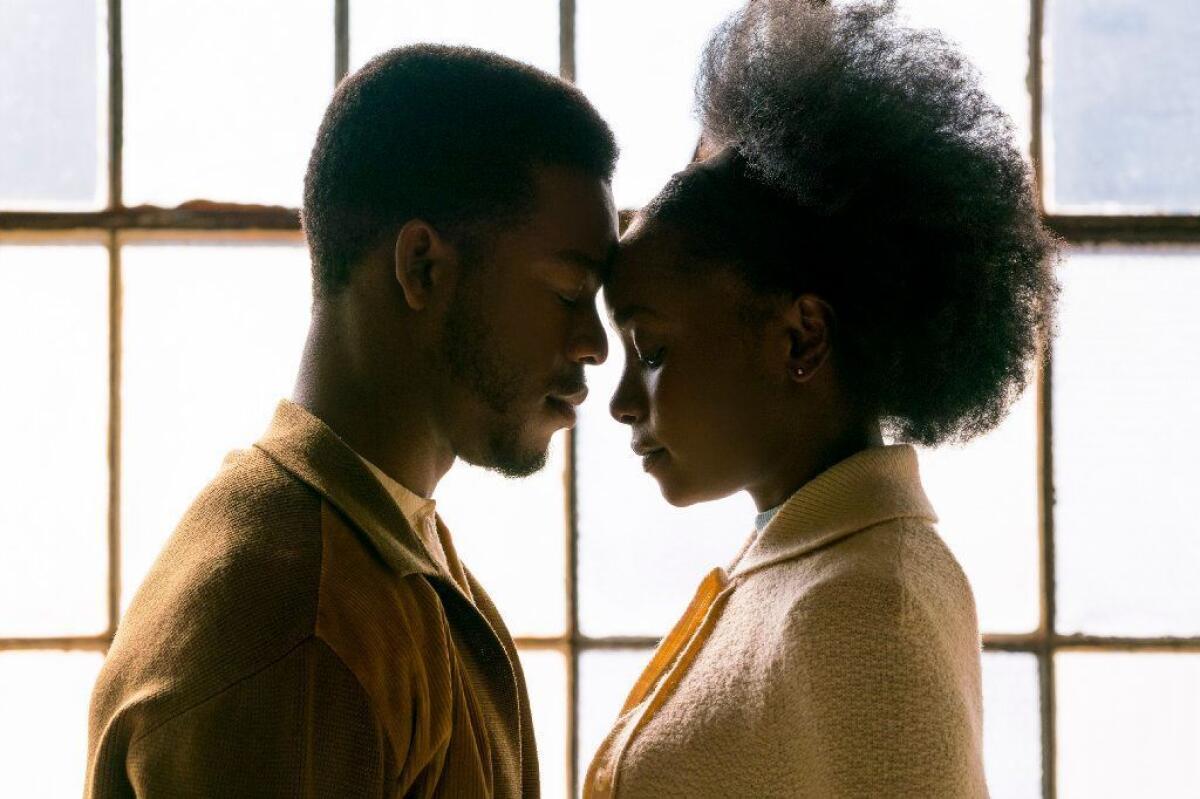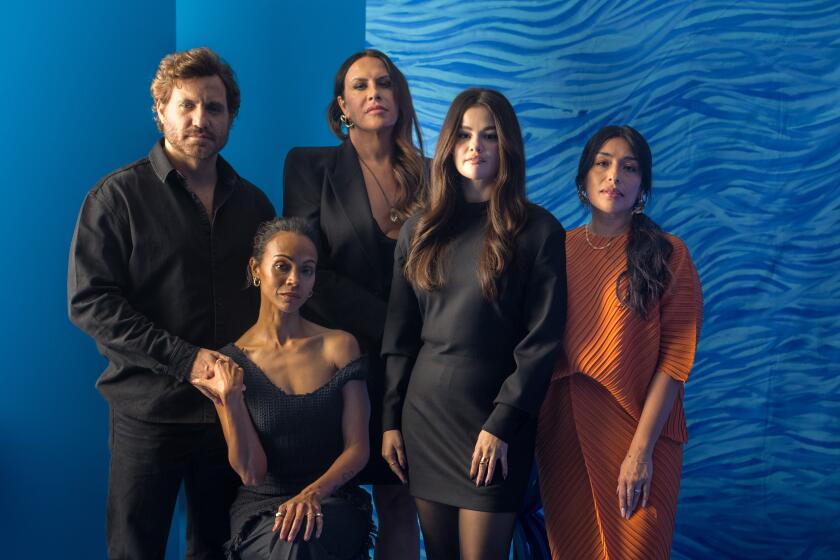Oscar nominations: From ‘Black Panther’ to ‘Zama,’ our film critic picks his dream ballot
Would the Academy Awards make smarter choices if film critics were given a ballot? In my entirely biased opinion, yes, they would — though I hasten to add that this has less to do with our superior taste than with our superior access.
Or perhaps those go hand in hand. It is, after all, the full-time reviewer’s obligation (and occasional pleasure) to see a wide array of movies year-round, far more than most Oscar voters do. Critics are thus more likely to make choices that take the entirety of the year in cinema — from the U.S. and from other countries, from the mainstream to the art-house — into consideration.
I’m not lobbying the academy for such an outcome, mind, just speculating. But while I’m at it, and ahead of the nominations reveal early in the morning on Jan. 22, here are my own personal preferences in the big eight Oscar categories (picture, director, the acting and screenplay races), plus a few other races in which I’ve taken a specific interest.
In the interests of preempting a few indignant emails:
1. Yes, I saw that movie.
2. No, I didn’t forget that movie.
3. Because this is my imaginary Oscar ballot, not yours.
PICTURE
“Black Panther”
“Burning”
“The Favourite”
“First Reformed”
“Hereditary”
“If Beale Street Could Talk”
“Private Life”
“The Rider”
“Shoplifters”
“Zama”
DIRECTOR
Ryan Coogler, “Black Panther”
Tamara Jenkins, “Private Life”
Lee Chang-dong, “Burning”
Lucrecia Martel, “Zama”
Chloé Zhao, “The Rider”
The academy’s preferential voting system allows for anywhere between five and 10 best picture nominees. I’m settling on 10, but this year, it could easily have been 20.
My favorite directors created wholly realized worlds. The East Village apartment in “Private Life” is as enveloping, in its own way, as the 18th century South American backwater in “Zama” or the vibrant African utopia of “Black Panther.” As for “Burning” and “The Rider,” they effortlessly bridged character and environment, transfiguring the natural world itself into a psychological landscape.
ACTRESS
Toni Collette, “Hereditary”
Olivia Colman, “The Favourite”
Kathryn Hahn, “Private Life”
Regina Hall, “Support the Girls”
Melissa McCarthy, “Can You Ever Forgive Me?”
ACTOR
Bradley Cooper, “A Star Is Born”
Ben Dickey, “Blaze”
Ethan Hawke, “First Reformed”
Joaquin Phoenix, “You Were Never Really Here”
Yoo Ah-in, “Burning”
I had to settle on five, but my imaginary motion-picture academy would allow 10 actress nominees this year, so brilliant and numerous were the female leads who commanded our attention. Expanding the field would allow me to accommodate Yalitza Aparicio (“Roma”), Juliette Binoche (“Let the Sunshine In”), Elsie Fisher (“Eighth Grade”), Helena Howard (“Madeline’s Madeline”) and Michelle Pfeiffer (“Where Is Kyra?”).
The pickings seem slimmer in the actor race, though five minute ago Willem Dafoe (“At Eternity’s Gate”), Nicolas Cage (“Mandy”), Daniel Giménez Cacho (“Zama”), Brady Jandreau (“The Rider”) or John C. Reilly (“The Sisters Brothers”) might have made the cut. As for Hawke, he’s in the unusual position of not only giving one of the year’s best performances but directing one of them, too (Dickey in “Blaze”).
SUPPORTING ACTRESS
Sakura Ando, “Shoplifters”
Kayli Carter, “Private Life”
Elizabeth Debicki, “Widows”
Jeon Jong-seo, “Burning”
Regina King, “If Beale Street Could Talk”
SUPPORTING ACTOR
Adam Driver, “BlacKkKlansman”
Philip Ettinger, “First Reformed”
Josh Hamilton, “Eighth Grade”
Michael B. Jordan, “Black Panther”
Steven Yeun, “Burning”
For what it’s worth, I also loved Emma Stone in “The Favourite” and Thomasin McKenzie in “Leave No Trace,” but they both clearly belong in the lead actress race, regardless of what their awards strategists might be saying.
When lead performances sneak into the wrong categories, it makes it all the harder for an organization to recognize a genuinely supporting turn — like, for example, Ettinger’s galvanizing work in “First Reformed,” which lasts all of one scene and continues to stay with me.
ORIGINAL SCREENPLAY
Patrick Wang, “A Bread Factory”
Bo Burnham, “Eighth Grade”
Paul Schrader, “First Reformed”
Tamara Jenkins, “Private Life”
Hirokazu Kore-eda, “Shoplifters”
ADAPTED SCREENPLAY
Ryan Coogler and Joe Robert Cole, “Black Panther”
Lee Chang-dong and Oh Jung-mi, “Burning”
Nicole Holofcener and Jeff Whitty, “Can You Ever Forgive Me?”
Claire Denis and Christine Angot, “Let the Sunshine In”
Lucrecia Martel, “Zama”
I suppose “A Bread Factory” represents my cheat of an entry in original screenplay, since Patrick Wang’s four-hour epic about the waning life of a New York community arts center is really two movies — two fleet, beguiling, wonderfully inventive movies — in one. But I couldn’t leave it off.
Some of the best adaptations this year were also some of the freest and most exploratory. “Black Panther” vigorously reimagined its Marvel source material, “Burning” departed dramatically from Haruki Murakami’s original short story, and for “Let the Sunshine In,” Claire Denis and Christine Angot beautifully melded Roland Barthes’ 1977 text “A Lover’s Discourse: Fragments” with swatches of their own lived experience.

CINEMATOGRAPHY
Hong Kyung-pyo, “Burning”
Robbie Ryan, “The Favourite”
James Laxton, “If Beale Street Could Talk”
Michael McDonough, “Leave No Trace”
Bradford Young, “Where Is Kyra?”
ORIGINAL SCORE
Ludwig Göransson, “Black Panther”
Justin Hurwitz, “First Man”
Keegan DeWitt, “Golden Exits”
Nicholas Britell, “If Beale Street Could Talk”
Scott Walker, “Vox Lux”
Not much overlap here, with one exception: The richly saturated colors of Laxton’s photography and the ecstatic crescendos of Britell’s music made “If Beale Street Could Talk” perhaps the year’s single most ravishing aesthetic object.
FOREIGN-LANGUAGE FILM
“Burning” (South Korea)
“Happy as Lazzaro” (Italy)
“Let the Sunshine In” (France)
“Shoplifters” (Japan)
“Western” (Bulgaria-Germany)
“Burning” and “Shoplifters” happily made the official Oscars shortlist, and if “Burning” makes it in, it will be the first South Korean picture to do so. My other three favorites were not chosen by their respective countries, but my ballot is happily unbound by the academy’s draconian submission policies.
DOCUMENTARY FEATURE
“Amazing Grace”
“Bisbee ’17”
“Hale County This Morning, This Evening”
“Minding the Gap”
“Shirkers”
Two formally intricate puzzles about life in small towns marked by tragedy (“Bisbee ’17,” “Hale County”), two intensely personal journeys through time and memory (“Minding the Gap,” “Shirkers”) and one glorious artifact (“Amazing Grace”) whose mere existence before us represents some kind of miracle.
ANIMATED FEATURE
“Incredibles 2”
“Mirai”
“Spider-Man: Into the Spider-Verse”
My Times colleague Charles Solomon would give me hell if I didn’t include animation this year, and happily, these three terrific movies made it not just easy but a pleasure to do so.
More to Read
Only good movies
Get the Indie Focus newsletter, Mark Olsen's weekly guide to the world of cinema.
You may occasionally receive promotional content from the Los Angeles Times.











